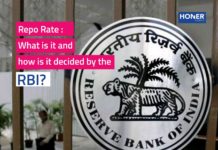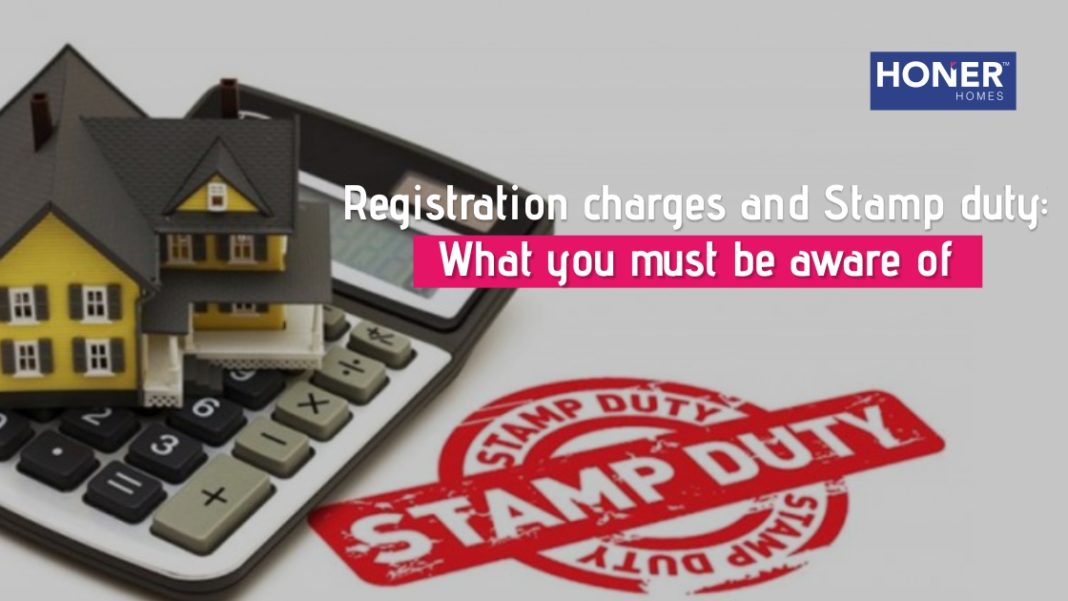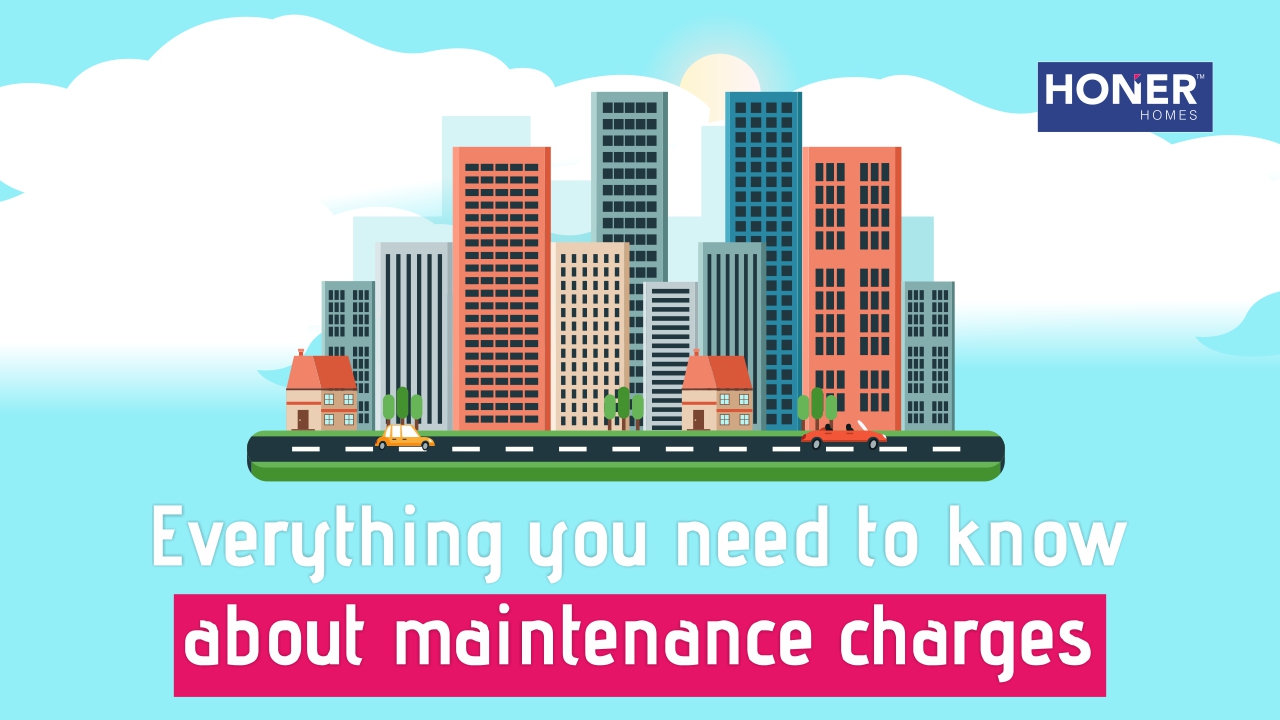Buying a property is not a cakewalk. It involves choosing the right property that will suit your need. If you are buying a residential apartment or house, the size, location and neighbourhood of the property play an utmost important role. When the house is chosen, you must apply for a home loan (if you are taking one) besides arranging for the 20% amount required for down payment. And if you think that all your financial obligations end here, you are overlooking another very important aspect of property buying, i.e., registration charge and stamp duty. This often tends to mess up our financial planning. These charges levied are not the same and they differ according to states and their respective municipal areas.
This article is a detailed account of what role the registration charges and stamp duty plays and how they are calculated.
Stamp Duty: It’s rates and charges on the property
You have found your dream home and paid money for it. Merely doing this does not mean that you can start staying in the house from the next day onwards. You must pay a stamp duty that is levied by the government when a property changes hands from the seller to the buyer. Besides residential properties, stamp duty is also charged on commercial, freehold and leasehold property. After the passing of the Indian Stamp Act in 1899, the stamp duty came into existence. Since this charge goes to the State Government, the rate varies from one state to another.
How is the Stamp Duty calculated and paid?
The slab of stamp duty varies from 3% to 10% as decided by the state. The stamp duty is calculated based on the higher value between the ready reckoner rate and the agreement value of the property.
Also Read: Understanding Home Loans, Interest rates of banks & How to avail home loan | Honer Homes
What is Ready Reckoner Rate?
The ready reckoner rate (RRR) is also known as the circle rate. This rate is published by the government on an annual basis and is the minimum value of the property based on a state, city, region and locality in a particular city. Based on a number of factors, the authorities set a benchmark for the property rate in a particular region and sellers cannot make any transactions below that limit.
Here’s how the stamp duty is calculated: If the property agreement rate is 70 lakhs, and the RRR is 55 lakhs, stamp duty is calculated based on 70 lakhs, i.e., on the higher value.
Factors that impact the stamp duty percentage
- Location of property – suburbs, within the city, rural area or metropolitan area
- Status of property – old, resale property, ready-to-move-in, under construction
- Gender of the owner – Some states give discounts to female property owners
- Age of the owner – Senior citizens are at times entitled to get concessions
- Type of property – Independent house or apartment
- Use of property – Residential use or commercial use
Also Read: Benefits of buying a property in your wife’s name
Payment of Stamp Duty
There are 3 distinct ways to pay the Stamp duty:
- E-Stamping
- Non-judicial stamp paper
- Frank Method
The Stamp Duty is paid along with the registration charge at the time of execution of the sale deed. The other deed details where stamp duty must be paid are –
- Transfer Deed
- Gift Deed
- Exchange deed
- Lease deed with a lease period more than 12 months
- Mortgage Deed
Stamp Duty rates in various metropolitan cities across India
| City | Stamp Duty rate |
| Hyderabad | 6% |
| Chennai | 7% |
| Bangalore | 5% |
| Mumbai | 3% – 6% |
| Delhi | 4% – 6% |
| Kolkata | 5% – 7% |
| Ahmedabad | 4.90% |
| Pune | 3% – 5% |
Also Read: Here’s how you can save tax by investing in a property
Registration Charge: How is it processed
The day of the property registration after it has been purchased is a big deal for Indians. The elders of the family usually choose an auspicious day and often the entire close family goes for the registration. It is no less than a celebration because legally you become the legal owner of the property once it is registered.
But in the midst of all the overwhelming excitement and profuse enthusiasm, legal advisors suggest that you must know the nitty-gritty for the registration procedure to go hassle-free.
After the stamp duty has been paid off, the documents go through the registration process with the Sub-registrar of Assurances where the property is located. The registration process is done to record the proper execution of the document so that you get the legal ownership of the property purchased.
The property registration fee is payable over and above the stamp duty and is applicable to every property valued over Rs.30,000. The property registration fee is calculated at 1% (the percentage varies from state to state) of the agreement value or the market value (whichever is lower).
Also Read: The impact of social media on home-buying decision
After thorough scrutiny of the documents and a detailed procedure, the acquired property is registered. Here are some key documents that are examined by the authorities before a property is registered.
- ID proofs like Aadharcard, PAN card, passport, or driving license of either party involved in the property transaction (both the buyer and the seller).
- The original deed document along with 2 photocopies to be submitted to the Sub-Registrar of Assurances
- The receipt of stamp duty paid
- Payment details of the property transaction
- The Khata certificate and receipt of the paid taxes
After the scrutinization of the above documents and other legal procedures are completed, a unique serial number is issued to the customer that marks the completion of the registration process.
Documents required for stamp duty payment and property registration
Keep these documents handy when registering the property and paying for the stamp duty:
- Signed and paid receipt of stamp duty
- Any of these id proofs: Aadhar card, Passport, pan card, driving license, Voter id, etc.
- Another id proof by witnesses
- Tax receipt paid for the last three months
- Tax clearance/No due certificate
- No Objection Certificate
- Relevant property documents like property deed, sales deed, power of attorney and conveyance deed
- Electricity Bill
- Passport size photos – 2
These are the important legal procedures that must be done after purchasing a property and getting legal ownership. However, these procedures are subjected to change from time to time as per the Government decision.
Also Read: Factors to consider while buying a property
The real estate sector in Hyderabad is experiencing a boom in recent years. Gopanpally in Gachibowli boasts of new apartment constructions. Honer Vivantis, a luxury project in Hyderabad by Honer Homes is a gated community apartment for sale near Gachibowli. The project has 2 bhk apartments for sale in Gachibowli – Gopanpally & 3 bhk apartments for sale in Gachibowli – Gopanpally with all the modern amenities to offer a hassle-free luxurious living.














































[…] Also Read: Registration charges and Stamp duty: What you must be aware of | Honer Homes […]